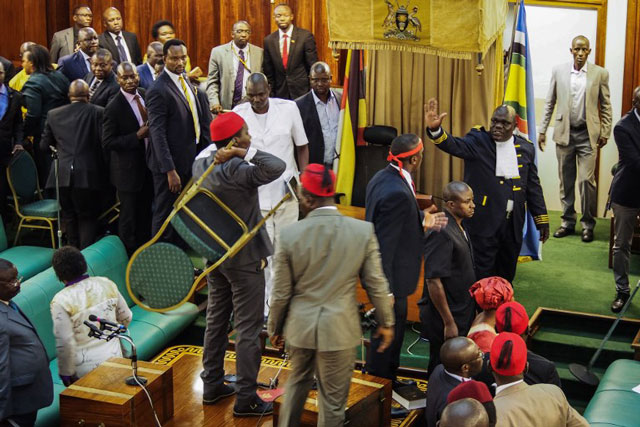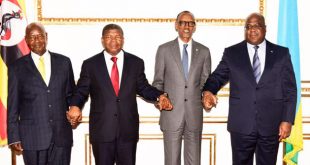
In reference to how the ruling party has handled such amendments in the past, Nganda said he and a group of legislators had gone to the Constitutional Court to challenge the previous amendments because in passing them, procedures were not followed and also because the articles they amended are very important that changing them was tantamount to changing the constitution.
But for Karuhanga, the path on the proposed referendum law is clear.
He says that passing the new law will require it is supported at the second and third readings in Parliament by not less than two-thirds of all members of Parliament.
“These readings will have to be fourteen days apart and after that the same decision will have to be subjected to a referendum,” he said.
Karuhanga explained that there are three ways in which the constitution can be amended; certain parts can be amended by parliament, others by parliament and approval by district councils, and others by parliament and through a referendum.
“Extension of the presidential term of office cannot be bundled with these other things,” he said.
But some MPs, including Jacob Oboth-Oboth, the West Budama County legislator who chairs parliament’s Legal and Parliamentary Affairs Committee and oversaw the processes surrounding the age limit law, say a referendum does not have to be brought both through a referendum law. The referendum can be brought through a resolution of parliament, says Oboth.
“But since Ugandans are too litigant,” Oboth-Oboth said, “I think it is better that government brings a referendum law such that there are no loopholes.”
Asked whether a fresh law would not lock parliament in another fight, Oboth-Oboth said; “That is part of democracy. The dictates of democracy may not be popular with people. It will still come to parliament with the same numbers and the majority will take the day. From parliament, it will go to the citizens.”
Semujju Nganda, the Opposition Chief Whip, said by the time Rukutana proposed a referendum law to cabinet; it means only a resolution by parliament is not sufficient.
Indeed, Article 105 of the Constitution, which currently provides for a five-year term, is one of the entrenched articles in the constitution. These articles can only be amended after a bill seeking to amend them is “supported at the second and third readings in Parliament by not less than two-thirds of all members of Parliament”; and after the same bill has “been referred to a decision of the people and approved by them in a referendum”.
Initially, insiders say, officials were planning to have parliament direct the Electoral Commission (EC) to conduct the referendum after the house passed a law (Constitutional Amendment Bill,2017) on December 20 removing the age limit, reintroducing term limits, and extending the term of office for legislators from five to seven.
 The Independent Uganda: You get the Truth we Pay the Price
The Independent Uganda: You get the Truth we Pay the Price



Once critical of leaders who overstay in power, today he leads the club in the continent Africa showing his true greed for power, hypocrisy, double standards, political deception, manipulation and arrogance.
A new breed of African dictators who have lost the clear line between multiparty politics and monarchy. He talks of ideological bankruptcy in African politics yet he has failed to implement his own NRM party mission and vision in his 32 years in power including their own initial 10 point program.
What does he need the time for? Systematic Corruption?, nepotism?, tribalism? Including his failure to deliver political and social service leadership? are those not enough indicators of his failed leadership? We already know his legacy of failed ideological political experiments.
Abraham Lincoln once said that nearly all men can stand adversity, but if you want to test a man’s character, give him power.
After the euphoric declaration of 26th January 1986; I wonder whether any of the 1st family members are still proud of the level of dishonesty, deception, manipulation and power clinging, of the head of this family.
In other words, to associate with Mr. Museveni’s dishonesty is embarrassing and dehumanizing. Like the Egyptian Pharaoh; and to use his own son in-law, Rwabogo’s imagery, the man is shamelessly and by hook or crook, fossilizing himself in State House.